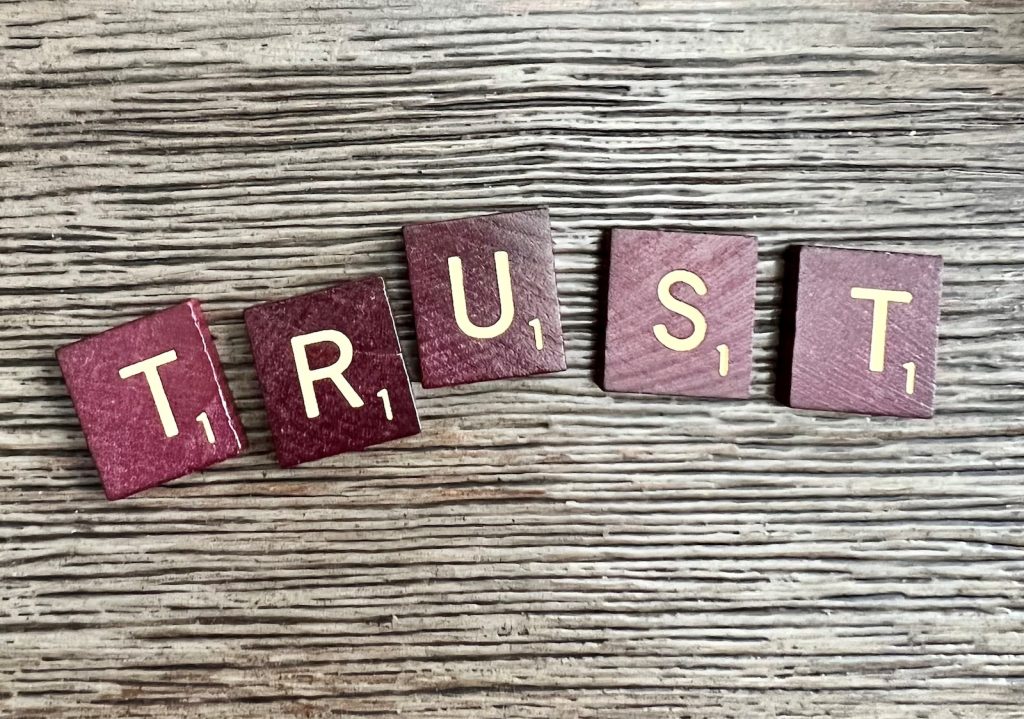News Flash: Your Children May Not Trust Themselves
If you don’t trust yourself, did you know that your children may not trust themselves, either?
You may have developed a mistrust of yourself from your parents.
It could be something that you picked up as a kid and carried into your adult life. You pass it on to your kids, and they will continue passing the process along to their kids.
Your actions and conversations may be subtle. Your kids will hear what you and your spouse talk about as well as discussions by or with other family members. You may well do things you’re not even aware of, but your kids will notice those, too. It’s often said that our children learn more from what we DO than what we SAY.
Choosing Caution instead of Irrational Fear
It’s a difficult situation, because you want your kids to be safe. You can’t just let them trust everyone they speak to or meet.
It’s a dangerous world; kids can become victims if you don’t teach them to be cautious. The other side of that dangerous world is that there’s a lot of GOOD in the world, and instilling a deep sense of fear about the world they live in will limit a child’s growth and sense of exploration and experimentation.
Trusting yourself requires trusting others, and that’s where the difficulty comes in. You may have been let down by people enough times to warrant your caution.
But these experiences are going to affect your children, and you should try to find a balance between letting them trust certain people while remaining cautious and instilling unreasonable fears or prejudices in them.
Of course, you want to instruct your kids to always be trustworthy themselves, even if others don’t behave that way toward them. It will be impossible for them to trust themselves if they don’t fit the definition of trustworthiness that they receive from you.
If they let others down, they won’t have any reason to develop an internal trust. That means you and your spouse, their primary influences, must be trustworthy.
You may be trustworthy to kids but not to other people. That can send the wrong signals to kids if you tell them they should be trustworthy to others. It will leave them confused and unsure of what to do.
That will lead to the long-term behavior of not being trustworthy, which means they won’t trust themselves.
Be sure to talk to your kids to help them develop the balance between caution and trust. If they have questions, be open to answering them. Try not to take offense if they feel you are sending mixed signals regarding trust.
When you find that balance and your kids find it too, your family will have the necessary means to trust each other and yourselves.
Making Developing Self-Trust a Family Affair
Developing a sense of self-trust is not easy, but well worth the effort. You must keep at it, and introducing a family journaling activity can be a fantastic bonding experience for parents (or caregivers) and children. Here are four simple prompts to help get children in your life started with family journaling practice. Feel free to adjust the prompt language to fit the ages and abilities of the children in your life:
- Trust Your Inner Voice: Ask your child to write down a time when they listened to their inner voice or “inside thoughts” (intuition). How did it feel? What did they learn from trusting themselves?
- Discovering Strengths: Have your child list three things they’re really good at and why they think those things come easily for them. Encourage them to reflect on their unique strengths.
- My Inner World: Invite your child to write about a challenge or difficulty they faced recently and how they handled it. What did this experience teach them about their abilities and strengths?
- Reflect on Growth: Encourage your child to write about something they want to be better at or learn. How can they take small steps toward that goal? What resources or support do they need?
Journaling with your children is a remarkable way to nurture their self-trust and self-knowledge. It’s a journey of self-discovery where they learn to rely on their own wisdom and recognize their unique strengths.
By reflecting on their experiences and inner thoughts, they gain valuable insights into who they are and their capabilities.
Embark on this journaling adventure together, and watch as your children blossom into confident, self-aware individuals who trust in their own abilities. Happy journaling! ????????????????????????????

